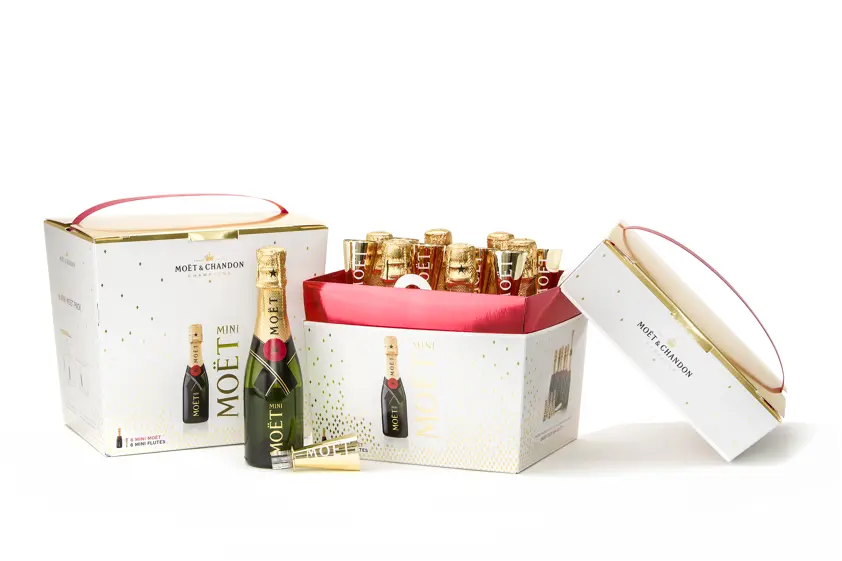We have all seen the photographs of marine animals suffocated by plastic bags, or of oceans so crowded with plastic waste that the water is almost obscured from view. The revulsion generated by such images has fostered a growing public aversion to the use of plastics.
The sector that stands to gain the most as consumers push for sustainable alternatives is the old rival of plastic packaging producers: the pulp and paper industry.
“The plastic-free movement wasn’t huge two years ago, but it is now,” says UK-based Foulkes-Arellano, who is an advisor at plastic-alternatives campaign group A Plastic Planet and Head of Client Programmes at Precipice Design. “The pulp and paper industry are very aware of the opportunities and will reign supreme in the coming years.”
Companies in forest-based industries have a whole raft of products that can perform the same functions as their plastic counterparts. These range from fully plastic-free coffee cups and meal trays to items like retro vintage suitcases or champagne carriers.
The changing market
One of the major battlegrounds in the campaign for environmentally-sound alternatives is over plastic-lined cups and drinks containers, which are often one of the most obvious plastic presences in people’s everyday lives.
“The big opportunities for the pulp and paper industry are in beverages and there is a lot happening in the beverage container space,” says Foulkes-Arellano. “Beverages is where Tetrapak, Elopak and Combibloc seem to have a monopoly on the market but they’re all using plastic, or layers of plastic and aluminium, in their cartons, which makes them a lot harder to recycle.”
But beverage packaging is not the only sector up for grabs. The market for plastic replacements is evolving quickly across all fast-moving consumer goods.
It is relatively easy to translate plastic designs into a moulded pulp equivalent and one of the stand-out examples are black packaging boxes developed for British cosmetics group LUSH by James Cropper 3D Products. “Lots of designers and pack specialists have seen them on social media, in the packaging press and at awards ceremonies and they are all really interested in using moulded pulp because of that one success,” says Foulkes-Arellano.
Leading the charge
It’s not just NGOs calling for reduced use of plastics, but governments and businesses are also increasingly following suit. Just last month, the UK parliament announced it was going plastic free by the end of the year, and companies all over the world have made plastic-free pledges.
In the consumer industry, the most responsive outfits tend to be start-ups, rather than big businesses, which are slower to respond to changing consumer demand. “The big brands are in the analysis and trialling phase, whereas the start-up brands have a mentality of ‘I will never touch plastic’ so you’re finding the start-up brands go straight into a pulp alternative,” states Foulkes-Arellano.
However, the media attention and public mood around plastics is likely to make large companies move faster in the coming months and years.
"A tipping point will be reached in spring 2019 because the retailers in the UK are moving to compostability,” says Foulkes-Arellano, referring to the goal of making all shop packaging biodegradable in a drive for sustainability. “This is like the holy grail of plastic-free.”
Facing challenges
While Foulkes-Arellano says that the forest industry is more than ready to respond to the growing demands for pulp and paper-based alternatives, he admits there are some factors that may limit the growth.
The main concern is price. “There is not an unlimited supply of carton and paper in the world and, at the same time, plastic is incredibly cheap,” he says. “The bottom end of the market or countries that are not switched on to sustainability may still want to use plastics.”
Besides wood fibres there are also other plant-based options that could provide an alternative to plastics.
Foulkes-Arellano says that the pulp and paper industry needs to stay ahead in this field: “The industry needs to make sure they get hold of this technology and innovate with it.”
Many in the pulp and paper industry are already offering plastic-free alternatives and the major players are well placed to take advantage of the opportunities now presenting themselves, according to Foulkes-Arellano. “It’s the beginning of a period of superiority for the pulp and paper industry.”
The rapid pace of urbanisation around the world and the relentless expansion of the middle class, particularly in countries like China, mean there is little chance the near future will see a decrease in the desire for less plastic.
Text: Howard Amos
Photo: Mini Moët pack, Moët & Chandon

